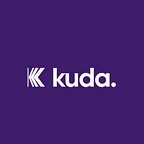How To Manage Your Personal And Business Finances
Learn practical ways to keep your personal and business finances separate.
It’s important to maintain a clear boundary between your personal and business finances because mixing them up can lead to confusion and you might be tempted to use your revenue to cover personal expenses or your personal funds to take care of your business costs.
So, how do you manage your personal and business finances to establish a stronger foundation for your financial well-being?
- Pay yourself a salary.
After each month’s sales, the first thing you should do is to pay yourself a salary. This salary should be at least 10% of your profits, regardless of how much revenue you make. The idea is for you to build discipline and avoid splurging from your business account. It also forces you to behave as you would if you were working for someone else.
2. Stick to your business’ budget.
Create a strict budget for your business expenses and allocate money to different bills at the start or end of every month. It’s also very important to try to not go over budget so you won’t need to use your personal funds to keep the business afloat.
If you are looking for a way to put this into practice, one feature we recommend is Sub Accounts on Kuda Business. This helps you easily put away money for recurring expenses like electricity, internet, inventory, or rent.
3. Monitor your spending closely.
One approach you can use to keep your finances organised is to know what you’re spending on. If you regularly use your business account to pay for personal items, make sure to keep track of how much and what you’re spending so you can repay them. The best method for tracking your spending is to log your expenses, keep receipts, and file them into separate categories. This helps you stay within your budget, clearly understand your financial habits, and be more accountable.
4. Make transactions strictly with your business account.
If you are serious about maintaining a clear distinction between your personal and business finances, it is important to use only your business account for receiving payments from customers.
By doing so, you can establish a transparent record of your business profits, expenditures, and savings. This practice also creates a sense of professionalism and encourages your customers to take you more seriously. If you don’t have a business account yet, consider opening a Kuda Business account at business.kuda.com now.
5. Save for rainy days.
Building an emergency fund for both your personal and business finances can serve as a buffer during unforeseen circumstances. This means you can avoid the need to use your personal funds for business expenses or dip into your business account to cover personal costs.
It might seem more convenient to use a single account for all transactions; however, doing so can cost you money in the long run. Separating your personal and business finances not only enhances your professional image but also serves as a strategic approach to foster business growth.
